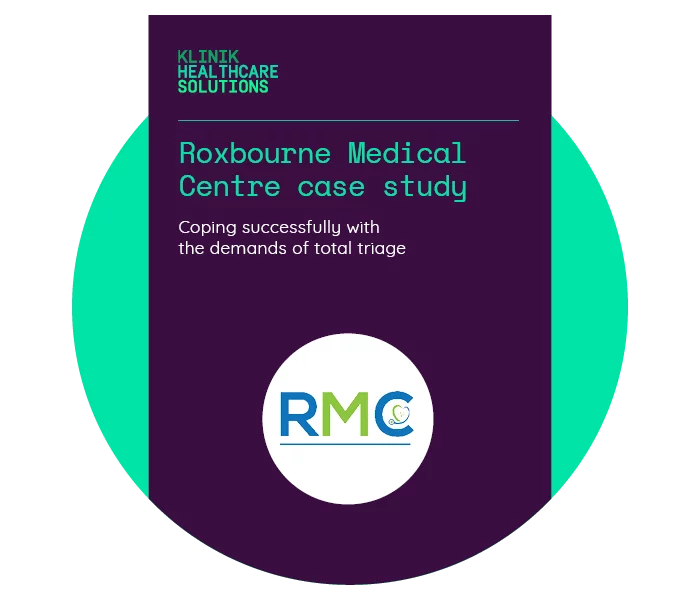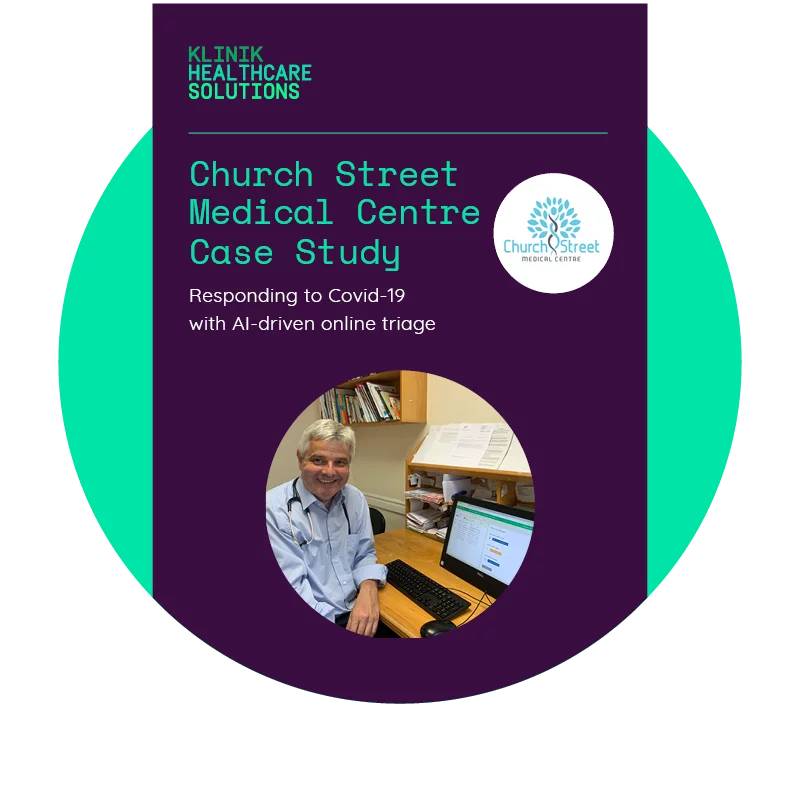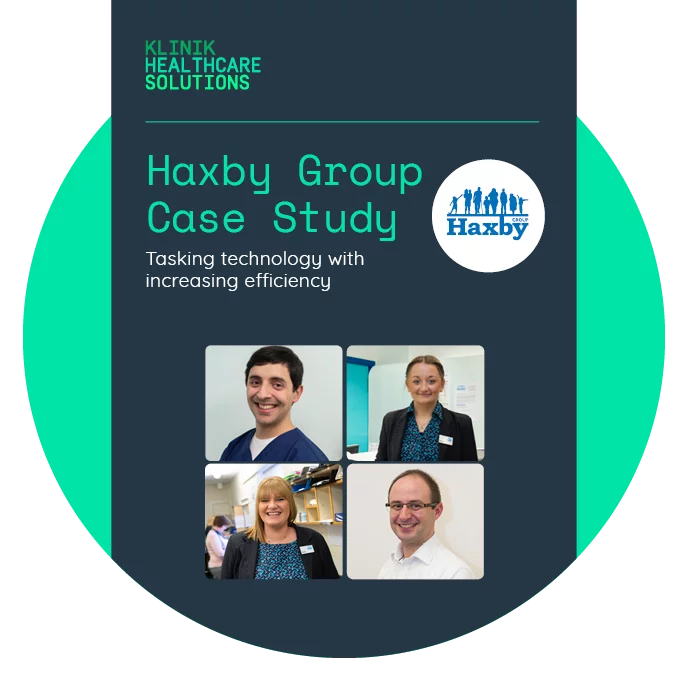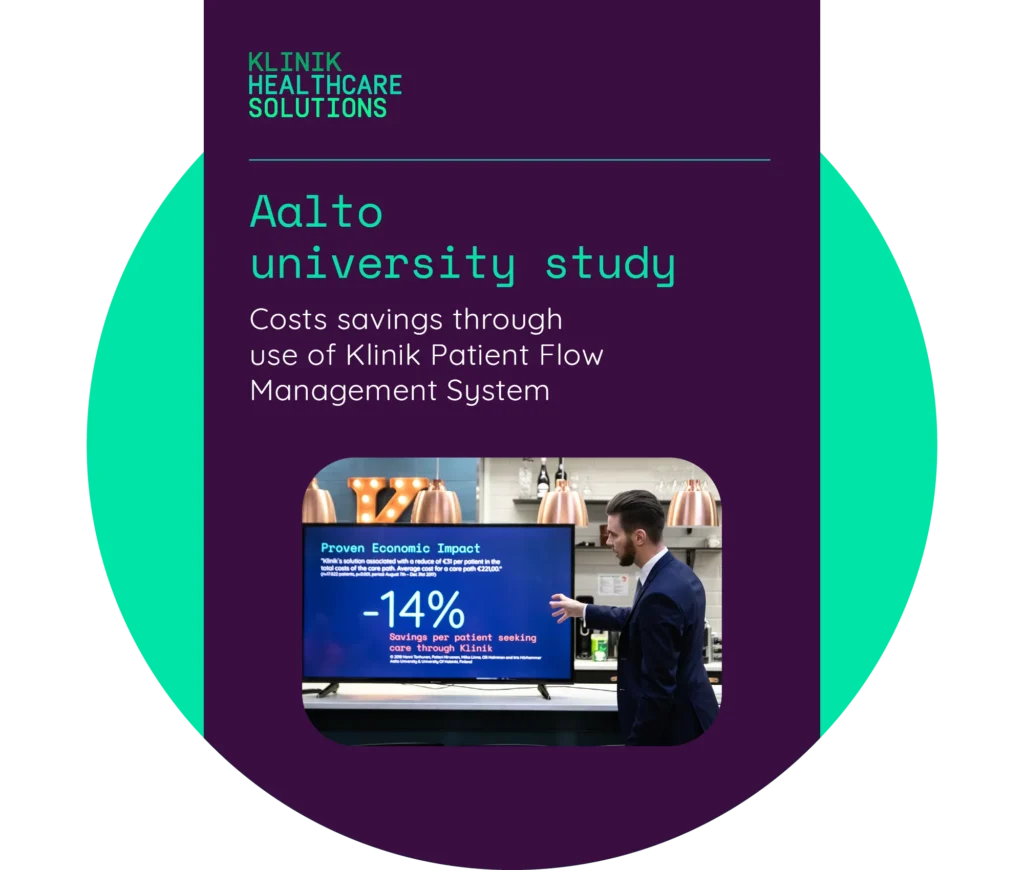Roxbourne Medical Centre Case Study
Online triage systems have brought clinicians face to face with the volume of unmet demand in general practice, and some have found it difficult to manage. One practice that is excelling at managing this demand is Roxbourne Medical Centre. With smart processes, great teamwork and Klinik’s technology, the London practice has been able to manage the demand it faces without having to increase headcount. Now staff would never go back to the old ways of working.











